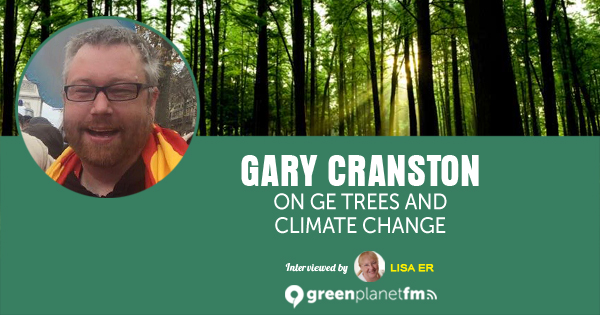
The UN Food and Agriculture Organization's definition of 'forest' includes commercial plantations of fast growing trees - often replacing biodiverse native forests relied on by local communities.
Perhaps this shonky description of a forest is really to accommodate industry, carbon sinks for emissions trading, and making money from climate change.
Forest conservation has been thought to be the simplest way to fight climate change, particularly in New Zealand, where cars and cows are incredibly effective carbon producers.
Have we now reduced the description of forests to ‘any area covered by trees’, discarding the structural, functional and biological diversity of non-tree elements that make up a forest, as well as the cultural importance of the interaction between forests and communities?
Drawing parallels between the treatment of workers and the treatment of natural systems, Gary Cranston talks about how the privatisation and the commodification of natural systems is being dressed up by polluters as a solution to climate change, and how these solutions must be replaced by solutions designed and implemented by and for those most threatened and least responsible for causing climate change itself if we are to realise an effective response to today's crisis of climate change and capitalism itself.
Fast growing and subject to damage by high winds, the full extent of GE trees’ social and ecological risks has not yet been assessed. So won’t genetically engineered trees exacerbate the plantation (not forest) situation even more?
Scientists manipulate the genetic material of trees by inserting DNA from an unrelated species to achieve desired results. Common desired traits include; freeze tolerance, altered wood composition for easier processing into paper, pulp or biofuels, and pest, disease and stress resistance.
Unlike traditional plant breeding methods, genetic engineering involves high-tech transgenics: the transfer of genes from one species to another. The results are organisms with traits not found anywhere in nature, designed solely to meet the needs of industry.
GE trees would lead to the expansion of industrial tree plantations as gains in productivity would make them more profitable. They would thus worsen the documented social and ecological impacts of these plantations.
Genetic contamination of forests by GE trees is inevitable and irreversible. Trees can live for centuries and have evolved to spread their seeds and pollen over great distances. The impacts of contamination would be highly unpredictable. Contamination could also occur through the escape of invasive GE trees into forests.
GE trees are a critical part of the ongoing, dangerous push to promote bio-energy, synthetic biology and the bio-economy. The monopolization of land and water to grow GE tree plantations to replace a small percentage of fossil fuels will come at high costs, including accelerating loss of terrestrial biodiversity, and intensifying global water, food and climate crises.
GE trees, especially those engineered to constantly produce insecticides, would directly and indirectly impact pollinators, other non-target insects, and birds as well as beneficial creatures crucial for food production and the food chain.
GE trees are part of the corporate capture and commodification of nature, and threaten food sovereignty.
The New Zealand Ministry for Primary Industries is seeking people’s views on the proposed subject matter of a National Environmental Standard for Plantation Forestry (NES-PF). This is a proposal to change how plantation forestry activities are managed under the Resource Management Act 1991 (RMA). If implemented, an NES-PF would replace local councils’ existing district and regional plan rules for managing plantation forestry.
It would stop us from declaring our area GE free, which has already been done in Hastings, the Bay of Plenty and Northland.
Formal consultation will begin on 17 June 2015 and close on 11 August 2015. A series of public meetings will be held as part of the consultation.
See this link for information:
https://mpi.govt.nz/news-and-resources/consultations/proposed-national-environmental-standard-for-plantation-forestry
If GE trees are allowed into the environment in New Zealand then that is the opening of the door to all GE crops to be grown here.
Originally from Dublin, Gary Cranston is an organiser with Unite Union, with a background in climate justice campaigning. He has worked at the frontline of extraction projects, from the Hunter Valley in New South Wales to isolated Maori communities.
Gary has also been working at the frontline of today's struggles for workers rights having organised workers throughout the successful campaign to end the use of Zero Hour Contracts in New Zealand's fast food industry.
Links:
www.etcgroup.org
www.stopgetrees.org.nz
www.biofuelwatch.org.uk
http://thischangeseverything.org
Trees
I think that I shall never see
A poem lovely as a tree.
A tree whose hungry mouth is prest
Against the earth’s sweet flowing breast;
A tree that looks at God all day,
And lifts her leafy arms to pray;
A tree that may in Summer wear
A nest of robins in her hair;
Upon whose bosom snow has lain;
Who intimately lives with rain.
Poems are made by fools like me,
But only God can make a tree.
by Joyce Kilmer
